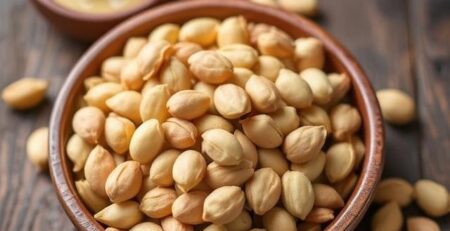Moringa: A Potent Source Of Health Benefits
Moringa leaves (or drumstick leaves, as we locally call them), derived from the Moringa oleifera tree, are often referred to as a “powerhouse of benefits” due to their impressive nutritional profile and potential health-promoting properties. You can consume it in the form of curry, dal, fries, or even in powdered form.
Nutrition: Moringa leaves are rich in essential nutrients, including vitamins (such as vitamin A, vitamin C, vitamin E, and several B vitamins), minerals (such as calcium, iron, potassium, and magnesium), and antioxidants. They also contain all nine essential amino acids, making them a complete protein source. So, maybe the next time you plan on taking store-bought protein, a few leaves from your garden will save you from cutting down on your savings.
Antioxidant and anti-inflammatory properties: Moringa leaves are known for their high antioxidant content, including flavonoids, polyphenols, and vitamin C. These antioxidants help neutralize harmful free radicals in the body, reducing oxidative stress and inflammation. This can potentially contribute to various health benefits and protect against chronic diseases.
Immune System Support: The abundance of vitamins, minerals, and antioxidants in moringa leaves can help support a healthy immune system. Vitamin C, in particular, is crucial for immune function and may help enhance the body’s ability to fight off infections and diseases. The very key source of vitamin C itself can help in collagen synthesis and the production of potent immune cells.
Potential Anti-Cancer Properties: Some studies suggest that moringa leaves may possess anti-cancer properties. Certain compounds found in moringa, such as glucosinolates and flavonoids, have shown potential in inhibiting the growth of cancer cells and reducing tumor formation, which are found in abundance in these green, leafy vegetables. However, more research is needed to fully understand the extent of moringa’s anti-cancer effects.
Blood Sugar Regulation: Preliminary research indicates that moringa leaves may have a positive impact on blood sugar control. Some studies suggest that moringa supplementation may help lower blood sugar levels, improve insulin sensitivity, and reduce markers of oxidative stress in individuals with diabetes.
Potential Cardiovascular Benefits: Moringa leaves may contribute to heart health by supporting healthy cholesterol levels and reducing oxidative stress and inflammation, which are risk factors for cardiovascular diseases. Some studies have suggested that moringa supplementation may help lower LDL (bad) cholesterol levels while increasing HDL (good) cholesterol levels.
Nutritional Support during Malnutrition: Moringa leaves have been recognized as a potential solution to combat malnutrition due to their high nutritional content. They provide a rich source of vitamins, minerals, and protein, making them a valuable addition to diets in regions where access to diverse and nutrient-dense foods is limited.
Incorporating this green leaf with myriad benefits is most likely to do wonders for your health system. But anything in excess can be truly poisonous. If you want to take it as a health supplement, opt for a natural source rather than lab-procured tablets or capsules.












